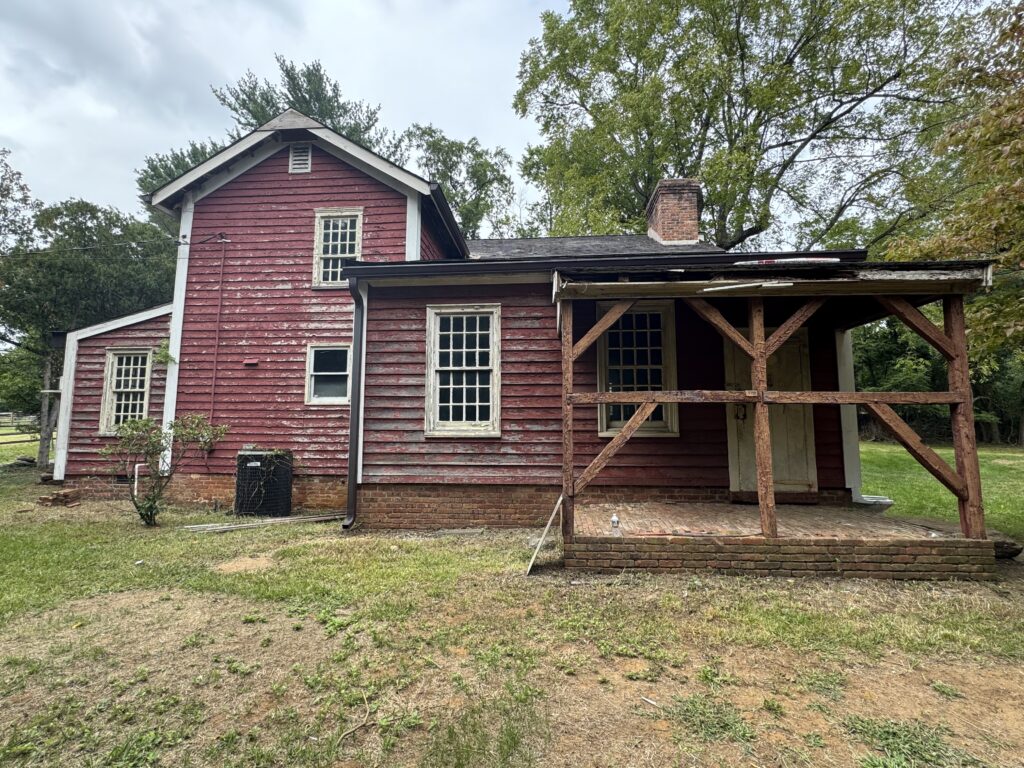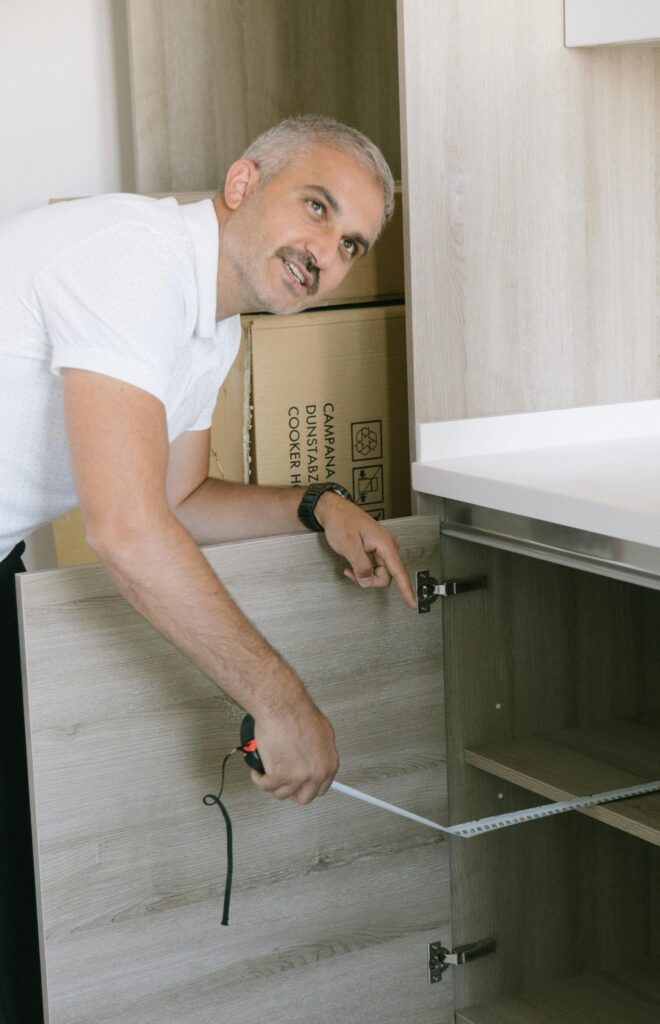Flipping houses can be a lucrative business, but success depends on finding properties with the right combination of affordability and potential for profit.
One of the best opportunities for house flippers is purchasing foreclosed homes. These properties often come at below-market prices, making them ideal investments for those willing to put in the work.
Is buying and flipping a foreclosed property right for your business? Let’s find out.
- What Are Foreclosed Homes?
- Types of Home Foreclosures & Sales
- Pros & Cons of Purchasing Foreclosed Homes for Flipping
- Why House Flippers Should Invest in Foreclosed Properties
- How to Purchase a Foreclosed Home: 6 Steps to Follow
- Tips for Finding the Best Foreclosed Property for Flipping
- Frequently Asked Questions (FAQs) About Purchasing Foreclosed Homes
What Are Foreclosed Homes?
Foreclosure occurs when a homeowner fails to pay mortgage payments. Eventually, this lack of payment leads to the lender reclaiming the property. Once repossessed, the home is sold to recover the remaining loan balance.
The foreclosure process creates opportunities for investors and house flippers to purchase properties at lower prices.
Types of Home Foreclosures & Sales
There are many different types of foreclosure property sales, and foreclosed homes may be at various stages in the process. It’s important to understand these types of home foreclosures and sales before investing because each type offers unique opportunities and challenges.
Pre-Foreclosure
If a property is in pre-foreclosure, it means that the homeowner has defaulted on their loan but still owns the property. These homes can be purchased through short sales, where the lender agrees to accept a lower amount than what is owed.
Auction Sale
After foreclosure, properties are often sold at public auctions, typically to the highest bidder. While these homes can be great deals, buyers usually need to pay in cash and may not have a chance to inspect the property.
Short Sale
During a short sale, the homeowner, with lender approval, sells the home for less than the remaining mortgage balance to avoid foreclosure. These sales can take longer but may yield excellent investment opportunities.
Bank-Owned Properties
If a home doesn’t sell at auction, it becomes a real estate owned (REO) property, meaning the bank owns it. These properties may be sold below market value, sometimes with the option for financing.
Government-Owned Homes
Homes backed by government agencies like the Department of Housing and Urban Development (HUD) may end up in foreclosure. These properties can be found on government websites and often offer competitive pricing.
Pros & Cons of Purchasing Foreclosed Homes for Flipping
Purchasing foreclosed homes can be an excellent investment opportunity for house flippers, but it is not without its risks. Here are some of the key pros and cons of purchasing foreclosed homes for flipping.
Pros
Lower Purchase Prices
Foreclosed properties are usually priced below market value, allowing house flippers to acquire properties at a significant discount. This lower cost of entry increases the potential profit margin when the home is renovated and sold.
High ROI Potential
With the right renovations, foreclosed homes can generate substantial profits. By purchasing a distressed property and making strategic upgrades, house flippers can dramatically increase a home’s market value and, in turn, their return on investment (ROI).
Variety of Options
From auctions to REO properties, there are multiple ways to acquire foreclosures. Investors can choose the method that best fits their budget, risk tolerance, and preferred investment strategy.
Less Competition
Some types of foreclosures, such as pre-foreclosures, attract fewer buyers than traditional listings. This reduced competition can give house flippers an edge in acquiring properties at lower prices.
Cons
Property Condition Issues
Many foreclosed homes require significant repairs, which can add to overall costs. These properties are often neglected, and flippers should be prepared for issues like outdated plumbing, electrical problems, or structural damage.

Lack of Inspection Opportunity
Auction sales may not allow inspections before purchase, which leaves buyers unaware of potential issues. This lack of inspection increases the risk of unexpected renovation expenses that could impact the profitability of the flip.
Complex Purchasing Process
Some foreclosures involve lengthy legal and financial procedures that can delay the purchase. These delays can be frustrating and may require investors to navigate additional paperwork or legal hurdles.
Potential Title Issues
Hidden liens or unpaid taxes can complicate ownership and lead to unexpected costs. Conducting a thorough title search before purchasing is required to avoid costly legal problems down the road.
Why House Flippers Should Invest in Foreclosed Properties
Foreclosed homes provide an excellent opportunity for house flippers due to their affordability and profit potential. Since these properties are often sold below market value, flippers can purchase them at a lower cost, allowing more room in the budget for renovations. This process makes it easier to improve the home’s appeal and sell it at a higher price, which leads to greater ROI. Additionally, the variety of foreclosure types—such as pre-foreclosures, auction sales, and bank-owned properties—gives investors multiple ways to acquire properties that fit their specific business model and financial situation.
Another key advantage is the steady supply of foreclosed properties in many markets. Economic fluctuations, job losses, and financial hardships contribute to a continuous cycle of foreclosures, ensuring that house flippers always have potential investment opportunities.
With the right strategy, flippers can leverage foreclosed properties to build a sustainable and profitable business by targeting undervalued homes, making strategic renovations, and selling them at competitive prices.
How to Purchase a Foreclosed Home: 6 Steps to Follow
Buying a foreclosed home can be a complex process, but careful planning and preparation can help house flippers make smart investment decisions. Use these steps for acquiring a foreclosed property as a guide to help you get started.
1. Research & Identify Opportunities
Begin by exploring foreclosure listings on bank websites, government foreclosure platforms, and real estate marketplaces. Consider working with a franchise that specializes in foreclosures to gain access to exclusive listings and insights into the best investment opportunities.
2. Get Pre-Approved for Financing
While some foreclosure purchases require cash payments, many REO homes allow financing. Securing pre-approval for a mortgage or an investment loan will help you determine your budget and show sellers that you’re a serious buyer.
3. Conduct a Title Search
Ensure the property has a clear title by researching any outstanding liens, unpaid taxes, or legal claims. Hiring a title company or attorney to perform this search can help prevent future ownership disputes and unexpected financial obligations.
4. Inspect When Possible
If the property isn’t being sold at an auction where inspections aren’t allowed, hire a professional to assess its condition. An inspection conducted by an experienced professional can help you estimate renovation costs and avoid costly surprises after purchase.

5. Make a Competitive Offer
Banks and sellers may prioritize cash offers but will often consider financed offers with strong terms. Explore how you can craft a competitive bid that aligns with market conditions, the property’s potential value, and your budget.
6. Be Prepared for a Longer Closing Process
Some foreclosure transactions take longer due to legal or financial complexities. Patience and flexibility are key, as delays can arise from banks processing paperwork, resolving title issues, or coordinating with multiple stakeholders.
Tips for Finding the Best Foreclosed Property for Flipping
Finding the right foreclosed property for flipping requires research, strategy, and due diligence. Not every foreclosed home is a great deal, so investors must know how to identify the best opportunities.
Here are some tips for selecting the best foreclosure properties for flipping.
Research Market Conditions
Before purchasing any foreclosed home, it’s important to understand the local real estate market. Look at comparable home prices, neighborhood trends, and the demand for housing in the area. Buying in a desirable location with rising home values increases the likelihood of a profitable flip.

Look for Properties with Cosmetic Issues Over Structural Problems
A foreclosed home with outdated interiors or minor cosmetic flaws is often a better investment than one with major structural damage. Simple fixes like painting, new flooring, and updated kitchens can significantly boost a home’s value with minimal investment, whereas foundation or plumbing problems can eat into profits.
Work with a Real Estate Franchise Specializing in Foreclosures
A house flipping franchise can provide insights into available foreclosure listings and help you navigate the complex purchasing process. They may also have access to off-market deals that aren’t widely advertised, networking opportunities, and financing to help streamline the process.
Assess Renovation Costs Accurately
Before making a purchase, estimate the cost of necessary repairs and upgrades. Hire a contractor to inspect the property and provide a renovation budget. Overestimating costs can prevent financial surprises and help ensure a solid return on investment.
Check for Title Issues & Liens
Some foreclosed homes may have unpaid taxes or other liens that could complicate ownership. Conduct a title search before purchasing to avoid costly legal troubles down the road.
Act Quickly but Cautiously
The best foreclosure deals don’t stay on the market long. Be prepared to move fast, but don’t skip important due diligence steps in the process. Balancing speed with thorough research is key to securing a profitable foreclosed property.
Frequently Asked Questions (FAQs) About Purchasing Foreclosed Homes
Is It a Good Idea to Buy a Foreclosed Home?
Yes, buying a foreclosed home can be a great investment, especially for house flippers looking for properties at a discount. However, foreclosed homes often require repairs and may have hidden issues, so thorough research and due diligence are essential. If you’re prepared for potential renovation costs and legal complexities, purchasing a foreclosure can lead to significant profit.
Do Banks Usually Negotiate on Foreclosures?
Banks may negotiate on foreclosed properties, but their flexibility depends on the market conditions and how long the property has been listed. If a home has been sitting unsold for a while, a bank may be more willing to lower the price. However, banks typically aim to recover as much of the loan balance as possible, so deep discounts aren’t always guaranteed.
How Much Should You Offer on a Foreclosed Home?
The amount you should offer on a foreclosed home depends on the property’s condition, market value, and how long it has been listed. A general strategy is to offer 10‒20% below market value while leaving room for negotiations. Don’t forget to research comparable home prices in the area and factor in estimated repair costs before making an offer.
How Much Do You Have to Put Down on a Foreclosed Home?
The required down payment for a foreclosed home varies depending on the type of financing used. If you’re purchasing through a conventional loan, expect to put down at least 5‒20%. For government-backed loans, like Federal Housing Administration (FHA) or Department of Veterans Affairs (VA) loans, you might qualify for lower down payments, sometimes as low as 3.5% (FHA) or even 0% (VA). However, if buying at auction, many properties require full cash payment upfront.
Do Banks Pay Closing Costs on Foreclosures?
Banks typically do not cover closing costs on foreclosed properties. Buyers are usually responsible for these expenses, which include title insurance, escrow fees, and other transaction costs. However, in some cases, banks may offer incentives or assistance with closing costs to move a property faster.
Why Are Foreclosed Homes So Cheap?
Foreclosed homes are often sold below market value because lenders aim to recover unpaid mortgage balances quickly. Additionally, these homes may be in poor condition due to neglect or vandalism, lowering their value. The distressed nature of foreclosures often deters traditional homebuyers, creating an opportunity for investors and flippers.
Do Banks Lose Money on Foreclosures?
Yes, banks often lose money on foreclosures because they typically sell them at a discount to recoup losses from the defaulted mortgage. The foreclosure process is costly for lenders, involving legal fees, property maintenance, and auction costs. Banks try to minimize these losses by pricing homes competitively.
Why Are Foreclosures Cash Only?
Not all foreclosures are cash-only, but many auction properties require full cash payment because financing can take too long. Banks and auction houses prefer cash buyers to streamline the sale and avoid the risk of loan approvals falling through. Some REO (bank-owned) foreclosures, however, may allow financing.
What Do Banks Do with Foreclosed Homes?
Once a home is foreclosed, banks try to sell it as quickly as possible, either at auction or as an REO (real estate owned) property. If it doesn’t sell at auction, the bank may list it with a real estate agent or sell it through foreclosure marketplaces. Their goal is to recover as much of the unpaid loan balance as possible.
Can You Make Money Flipping Foreclosed Homes?
Yes, many real estate investors make substantial profits by flipping foreclosed homes. Buying at a discount, making strategic renovations, and selling at market value can yield high returns. However, success requires careful property selection, accurate budgeting for repairs, and a strong understanding of local real estate trends.
Is Buying a House in Foreclosure a Good Idea?
It depends on your investment goals and experience level. Buying a foreclosed home can be an excellent opportunity if you’re prepared for potential risks like property damage, title issues, or a competitive bidding process. For house flippers and real estate investors, foreclosures often offer some of the best deals on the market.
Can You Get a Mortgage for a Foreclosed Home?
Yes, you can often finance a foreclosed home with a conventional mortgage, FHA loan, or hard money loan. However, many lenders have stricter requirements for distressed properties, so you may need a higher credit score or a larger down payment. Keep in mind that some foreclosures, especially auction properties, may not qualify for traditional financing.
How Long Does It Take to Buy a Foreclosed Home?
The timeline varies based on how the home is purchased. Auction purchases can close within days, while bank-owned and short sales can take several weeks or months due to negotiations and legal processes. Government foreclosures also tend to have longer timelines due to additional paperwork.
Can You Inspect a Foreclosed Home Before Buying?
It depends on the type of foreclosure. Bank-owned properties usually allow inspections, while auctioned homes are typically sold “as-is” with no opportunity for inspection. If possible, drive by the property or research public records to get an idea of its condition before bidding.
What Happens If a Foreclosed Home Has Unpaid Taxes or Liens?
If a property has outstanding liens or unpaid taxes, the buyer may be responsible for paying them. Conduct a title search before purchasing to identify any financial obligations attached to the home. Some foreclosure deals include a clear title, but others require buyers to resolve legal and tax issues themselves.
Join the New Again Houses Franchise
At New Again Houses, we provide house flippers with the resources, support, and expertise needed to succeed in the competitive world of real estate investment.
With access to capital, expert training, and a robust network of real estate professionals, New Again Houses franchisees gain an edge in acquiring and transforming foreclosed properties. Whether you’re new to house flipping or an experienced investor, we can provide guidance on finding the best foreclosure deals and navigating the complexities of renovation and resale.
Beyond financial and educational support, New Again Houses offers networking opportunities that connect flippers with contractors, lenders, and industry professionals.
By partnering with New Again Houses, you can streamline the entire flipping process, minimize risks, and maximize profitability to ensure long-term success in the real estate market. Contact us today for more information about our unique approach to house flipping.